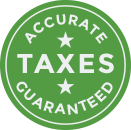Ministry Income – 1099 Form
Sole proprietorships are single-owner, unincorporated businesses ranging from home-based businesses to ministry income reported on form 1099. A sole proprietorship is a popular form because it’s straightforward and low cost. This entity allows you to run a one-man show with little administrative overhead. But, you become personally responsible for ministry debts and other obligations like taxes….
Box 14 of the W2 Form
Box 14 of the W2 Form is often viewed as an optional box by secular employers to report miscellaneous information to their employees. However, due to the complexity of clergy tax law, it has always been highly recommended by the IRS and an industry standard to report housing allowance in box 14. This best practice…
Complicated Nanny Taxes
Employing a nanny or an elder-care giver may seem like a simple proposition, but in the eyes of the IRS it isn’t. Is it the your responsibility as a home-care employer to report workers’ earnings to the IRS? Should the worker receive a 1099 tax form or a W-2? Is he or she an employee or…
Best Practices for Churches with 1099 Individuals
IRS Form 1099 reports to the Federal government various types of taxable income paid to contractors and vendors. There are versions of the 1099 to report payments for services as well as interest, dividends, and real estate sale proceeds. This form is issued by churches to guest speakers, pulpit supply, etc., who provide services in…
Consider Giving Appreciated Assets
IRS INDEPENDENT CONTRACTOR CHECKLIST
Mistakenly classifying an employee as an Independent Contractor can result in significant fines and penalties. The Internal Revenue Service (IRS) uses twenty factors to determine whether or not an employer has enough control over a worker in order for that individual to be classified as an employee. Designed only as a guideline, this checklist can…
Employees versus Independent Contractors
Incorrectly classifying someone as an independent contractor instead of an employee can be very costly for the church based on IRS penalties. When in doubt, your best bet is to classify someone as an employee. If you really want to classify an individual as an independent contractor, you can’t dictate how much time they spend…
Hobby or Business?
Millions of people enjoy hobbies that are also a source of income. You must report on your tax return the income you earn from a hobby. The rules for how you report the income and expenses depend on whether the activity is a hobby or a business. There are special rules and limits for deductions…
Is your hobby really a business?
The Internal Revenue Service defines a hobby as an activity you pursue without expecting to make a taxable profit. Basically, you do it because you like it, regardless of the cost. But if you demonstrate that you are involved in an activity with the expectation of making money on it, the IRS will consider it…
What are the IRS implications for honoraria, “love offerings,” and fees received separately from compensation?
For the most part, any income received in exchange for services rendered is taxable for both federal income and Social Security taxes, regardless of how it was received. The only exceptions are income paid for certain employer-provided benefits and housing allowances. If income comes through a source other than your employing organization, and it is…





